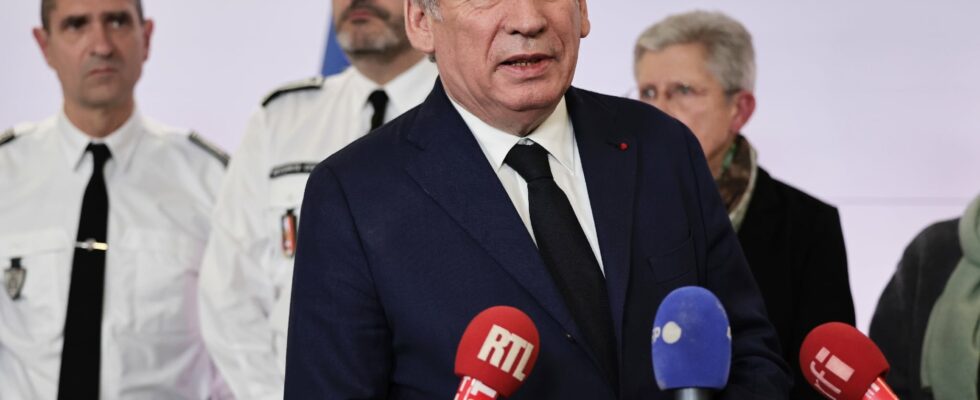A new breakup? Prime Minister François Bayrou confirmed, Monday, December 16 before the Pau municipal council, that he would remain mayor of the city, which the legislation authorizes. As a reminder, the councilor has also been president of the Pau Béarn Pyrénées conurbation since 2014, president of Modem since 2007 as well as of the European Democratic Party since 2004. And it’s not over: he is still high commissioner for planning, in accordance with Emmanuel Macron’s mission letter and his appointment four years ago.
In the process, the septuagenarian said he was in favor of re-authorizing the accumulation of mandates for parliamentarians, not hesitating to describe the rule established in 2014 under the presidency of François Hollande as an “error”. “I think that this debate must be resumed,” assured the new head of government, specifying that he would ask this question in his general policy speech.
Since 2014, legislation has prohibited a minister from holding the hat of parliamentarian. It is also prohibited for any deputy and senator to exercise a local executive function. Concretely, a senator or a deputy cannot therefore combine the following functions: mayor, president or vice-president of a regional or departmental council, president or vice-president of a public establishment of intermunicipal cooperation with its own taxation, such as a metropolis.
No national and European parliamentary mandate
Be careful, however, to read between the lines of the organic law of 2014. “A deputy or senator can, however, be elected to a municipal, departmental or regional council without exercising an executive function”, recalls the site of the Ministry of the Interior. Please note that a politician does not have the right to hold more than one local mandate alongside their parliamentary function.
When a parliamentarian is elected to a local executive function, or vice versa, he has thirty days after the promulgation of the results of the election to put an end to this incompatibility by resigning from the mandate or function he previously held. “Failing this, the mandate or function acquired on the earliest date automatically ends,” continues the organic law.
Another important point: a representative elected to the European Parliament does not have the possibility of being, at the same time, holder of a national parliamentary mandate. “He cannot exercise more than one electoral mandate among the mandates of regional advisor, advisor to the Assembly of Corsica, departmental advisor, advisor to Paris, advisor to the Assembly of Guyana, advisor to the Assembly of Martinique, advisor municipal of a municipality of 1,000 inhabitants or more”, also adds the text.
By keeping his position as councilor, François Bayrou breaks with tradition
At the time when former President François Hollande decided to prohibit the accumulation of mandates, France was an exception in Europe with a very marked “culture of accumulation” which was confirmed during the Fifth Republic. “In 2012, 476 deputies out of 577 (82%) and 267 senators out of 348 (77%) were in a cumulative situation,” recalls the site Public Life. The laws adopted in 2014 mark a break and seek to put an end to this “French specificity”.
Let’s come back to François Bayrou. Article 23 of the Constitution only prohibits the combination of a ministerial function with a “parliamentary” mandate. If no text therefore obliges a minister to resign from his mandate as mayor, the predecessors of the new tenant of Matignon had abandoned their position as first city councilor, such as recently Jean Castex in 2020 or Édouard Philippe in 2017, who had respectively left their seats mayor of Prades and Le Havre to their deputies. However, a tendency towards accumulation was already observed in the Barnier government, like Nicolas Daragon, minister delegate in charge of daily security who remained mayor of Valence, or Gil Avérous, minister of Sports, Youth and the Associative Life which has kept its hat as councilor of Chateauroux.
For its part, the Pau opposition criticized the choice of François Bayrou, believing that he was “not in his place”, nor “irreplaceable” in Pau. “Our city needs a mayor present every day and involved in issues,” launched the socialist Jérôme Marbot, while the ecologist Jean-François Blanco criticized him for his participation in the municipal council, believing that his place “was in Paris or Mayotte” and that a local mandate “should not be a basis for fallback”.
The Prime Minister opened the session by mentioning the “catastrophe” of Cyclone Chido in Mayotte and observing a minute of silence. To a journalist who asked him at the end of the municipal council whether he should be called “Mr. Mayor or Mr. Prime Minister”, François Bayrou responded with a smile that he chose the first option because “it’s a title more sustainable.
